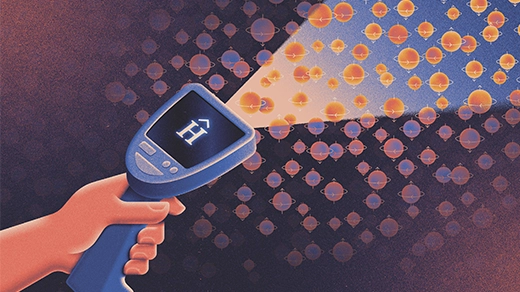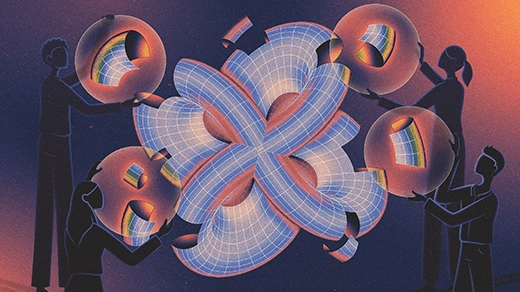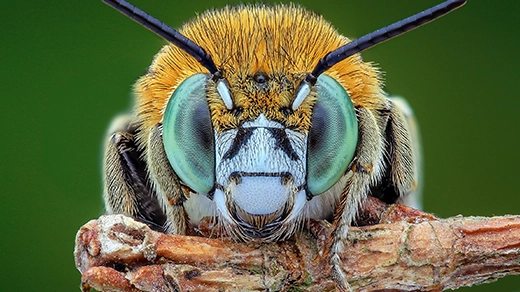What's up in
Abstractions blog
Latest Articles
Scientists Find a Fast Way to Describe Quantum Systems
After years of false starts, a team of computer scientists has found a way to efficiently deduce the Hamiltonian of a physical system at any constant temperature.
Mathematicians Marvel at ‘Crazy’ Cuts Through Four Dimensions
Topologists prove two new results that bring some order to the confoundingly difficult study of four-dimensional shapes.
Insects and Other Animals Have Consciousness, Experts Declare
A group of prominent biologists and philosophers announced a new consensus: There’s “a realistic possibility” that insects, octopuses, crustaceans, fish and other overlooked animals experience consciousness.
Avi Wigderson, Complexity Theory Pioneer, Wins Turing Award
The prolific researcher found deep connections between randomness and computation and spent a career influencing cryptographers, complexity researchers and more.
Number of Distances Separating Points Has a New Bound
Mathematicians have struggled to prove Falconer’s Conjecture, a simple, but far-reaching, hypothesis about the distances between points. They’re finally getting close.
How the Ancient Art of Eclipse Prediction Became an Exact Science
The timing of the total eclipse on April 8, 2024, will be known to within a second, thousands of years after fearful humans first started trying to anticipate these cosmic events.
Overexposure Distorted the Science of Mirror Neurons
After a decade out of the spotlight, the brain cells once alleged to explain empathy, autism and theory of mind are being refined and redefined.
Topologists Tackle the Trouble With Poll Placement
Mathematicians are using topological abstractions to find places where it’s hard to vote.
Michel Talagrand Wins Abel Prize for Work Wrangling Randomness
The French mathematician spent decades developing a set of tools now widely used for taming random processes.








